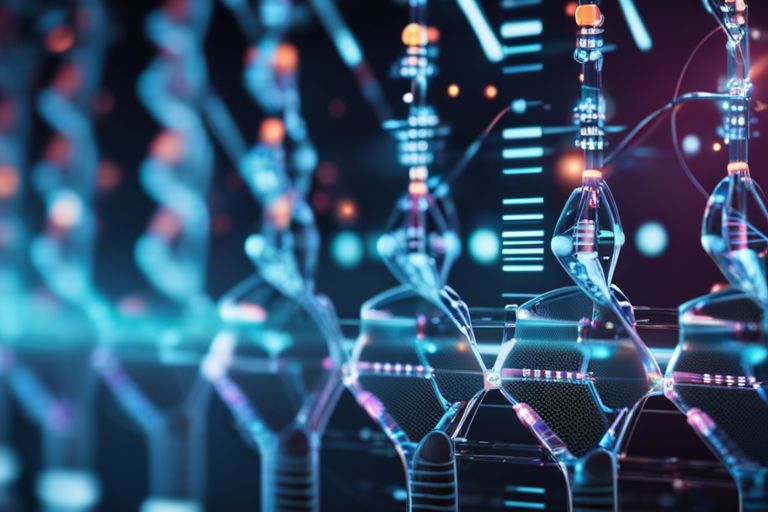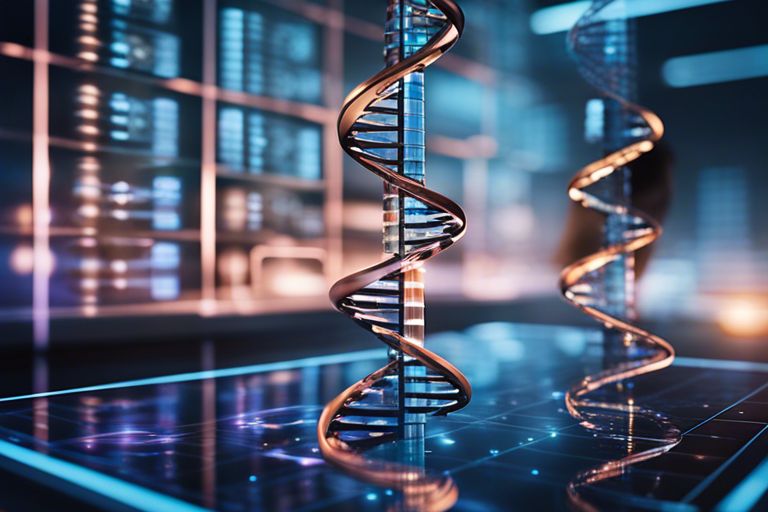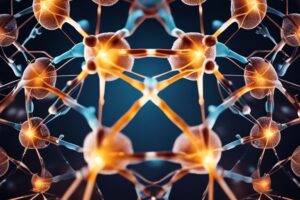Autism, a complex neurodevelopmental disorder, has puzzled researchers and healthcare professionals for decades. While there is currently no known cure for autism, advancements in research and technology are offering hope for the future. Scientists are continuously studying the underlying mechanisms of autism, exploring potential treatments, therapies, and early interventions. With ongoing research and innovative approaches, the possibility of finding a cure for autism is not entirely out of reach. To learn more about recent developments in autism research, you can read our related article on Is a Cure for Autism Being Developed? (2022).
Key Takeaways:
- Research Advancements: Ongoing research has led to significant advancements in understanding autism spectrum disorder.
- Treatment Possibilities: While a cure for autism may be unlikely, research is focusing on developing effective treatments and interventions to improve quality of life.
- Early Intervention: Early diagnosis and intervention play a crucial role in managing symptoms and improving outcomes for individuals with autism.

The Nature of Autism
Autism is a complex neurodevelopmental disorder that affects how a person perceives the world and interacts with others. Individuals with autism may have challenges with social skills, communication, and repetitive behaviours. The exact causes of autism are not fully understood, but research suggests a combination of genetic and environmental factors play a role in its development.
Autism Spectrum Disorders Explained
Autism Spectrum Disorders (ASD) encompass a range of conditions including autism, Asperger syndrome, and pervasive developmental disorder not otherwise specified (PDD-NOS). Each individual with ASD presents differently, with varying strengths and challenges. While some individuals may have significant difficulties in communication and social interactions, others may excel in specific areas such as mathematics or music.
Genetic and Environmental Factors
Research has shown that both genetic and environmental factors play a crucial role in the development of autism. Studies have identified certain genes that are associated with an increased risk of autism. Furthermore, environmental factors such as prenatal exposure to certain substances and maternal health during pregnancy have also been linked to an increased likelihood of autism. The interplay between genetic predispositions and environmental influences contributes to the complexity of autism.
- Genetic factors: Certain genes have been identified to increase the risk of autism.
- Environmental factors: Prenatal exposure to certain substances and maternal health during pregnancy have been linked to autism development.

Treatments and Therapies
When it comes to treating Autism Spectrum Disorder (ASD), there are various approaches that can help individuals manage their symptoms and improve their quality of life. These treatments and therapies range from behavioural and educational interventions to emerging medical and technological treatments.
Behavioral and Educational Interventions
Behavioural and educational interventions play a crucial role in supporting individuals with autism. Applied Behaviour Analysis (ABA) is a widely used approach that focuses on improving specific behaviours by breaking them down into smaller, achievable goals. Early intensive behavioural intervention (EIBI) has also shown significant benefits, especially when started in early childhood, helping children develop essential skills and reduce challenging behaviours.
Emerging Medical and Technological Treatments
In recent years, there have been exciting advancements in emerging medical and technological treatments for autism. From transcranial magnetic stimulation (TMS) to virtual reality (VR) therapy, these innovative approaches are showing promising results in addressing social communication difficulties and sensory sensitivities in individuals with autism.
One particularly promising development is the use of cannabidiol (CBD) oil for managing symptoms of autism. While research is still in the early stages, some studies suggest that CBD oil may help with anxiety, sleep disturbances, and hyperactivity in individuals with autism.
The Quest for a Cure
As the scientific community continues to explore ways to address the complexities of autism, the quest for a cure remains a top priority. Through advancements in research, various avenues are being explored in the pursuit of finding a definitive cure for autism.
Gene Therapy and Genetic Engineering
Gene therapy and genetic engineering hold great promise in the search for a cure for autism. By targeting specific genes or genetic mutations associated with autism, researchers aim to develop therapies that can correct or modify these genetic factors. This revolutionary approach opens up new possibilities in the treatment of autism by addressing the root genetic causes of the condition.
Recent breakthroughs in gene therapy have shown encouraging results in preclinical studies, offering hope for the future of autism treatment. By harnessing the power of genetic engineering tools, scientists are able to manipulate genes and potentially reverse the effects of genetic mutations that contribute to autism. This cutting-edge technology represents a significant advancement in the quest to find a cure for autism.
Neurological Research and Brain Plasticity
Neurological research and the concept of brain plasticity are key areas of focus in the search for a cure for autism. Scientists are investigating how the brain adapts and reorganises itself, known as brain plasticity, in individuals with autism. By understanding these mechanisms, researchers hope to develop interventions that can promote healthy brain development and improve symptoms associated with autism.
Studies have shown that the brain has a remarkable ability to change and adapt, even in individuals with autism. This suggests that targeted interventions aimed at harnessing brain plasticity could potentially lead to significant improvements in cognitive function, communication skills, and behaviour in individuals with autism. The exploration of neurological research and brain plasticity offers a promising avenue in the quest for a cure for autism.

Ethical and Social Considerations
The Debate Over the Concept of a Cure
The idea of a cure for autism has sparked a significant debate within the scientific community as well as among individuals with autism and their families. Some argue that seeking a cure implies that autism is a disease that needs to be eradicated, potentially leading to stigma and discrimination against those with autism. On the other hand, proponents of finding a cure believe that it could improve the quality of life for individuals with autism and their families by addressing the challenging symptoms and co-morbid conditions associated with the disorder.
However, it is crucial to recognise that autism is not a monolithic condition but rather a spectrum with a wide range of presentations and experiences. This complexity adds layers to the debate over a cure, with some arguing that a one-size-fits-all approach may not be suitable for a neurodevelopmental disorder as diverse as autism.
Implications for Society and Individuals with Autism
The potential development of a cure for autism could have wide-ranging implications for both society and individuals with autism. While a cure may offer relief for some individuals by alleviating symptoms that cause distress and impairment, it could also inadvertently perpetuate ableism and the notion that autism is inherently negative. Society may need to confront deep-seated biases and misconceptions about autism to ensure that individuals with autism are truly valued and accepted for who they are.
Furthermore, the pursuit of a cure for autism raises questions about how resources should be allocated within the healthcare system and whether efforts would be better directed towards improving support services and accommodations for individuals with autism. It is essential to consider the ethical implications of prioritising a cure over initiatives that promote inclusion, acceptance, and quality of life for individuals with autism.
Future Directions in Autism Research
As we explore into the future of autism research, there are exciting avenues that show promise in advancing our understanding and treatment of the condition. Two key areas that hold immense potential are innovations in diagnostics and personalised medicine, as well as the integration of artificial intelligence (AI) and machine learning.
Innovations in Diagnostics and Personalised Medicine
Advancements in diagnostics are paving the way for earlier and more accurate identification of autism spectrum disorder (ASD). Through the use of genetic testing, brain imaging, and other cutting-edge technologies, researchers are gaining insights into the diverse biological markers associated with autism. This personalised approach allows for tailored interventions that address the specific needs of each individual with ASD, leading to more effective outcomes.
The Role of AI and Machine Learning
AI and machine learning are revolutionising the field of autism research by analysing vast amounts of data to uncover patterns and trends that may not be apparent to human researchers. These technologies are enhancing our ability to predict behaviours, develop individualised treatment plans, and improve early intervention strategies. By harnessing the power of AI, we are moving closer to unlocking the complexities of autism and enhancing the quality of life for individuals on the spectrum.
Will Autism Ever Be Curable? Advancements in Research
Autism is a complex neurological condition with varying degrees of symptoms that can impact individuals differently. While there is currently no cure for autism, advancements in research have led to a better understanding of the condition and innovative treatment options. Through ongoing studies, such as genetic research and investigation into early intervention techniques, there is hope for improving the quality of life for individuals with autism. While a definitive cure may still be on the horizon, the progress being made in the field of autism research is promising and offers hope for the future.
FAQ
Q: Is there a cure for Autism?
A: No, Autism is a lifelong neurodevelopmental disorder for which there is currently no known cure.
Q: What are the advancements in research towards curing Autism?
A: Research into Autism is focused on understanding the underlying causes, developing effective interventions, and improving quality of life for individuals with Autism.
Q: Can Autism be completely eliminated through treatment?
A: While there is no cure for Autism, early intervention and therapy can help individuals with Autism to develop skills, improve communication, and lead fulfilling lives.
Q: Are there any promising treatments on the horizon for Autism?
A: Several promising treatments such as behavioural interventions, speech therapy, occupational therapy, and medication management are being used to help manage the symptoms of Autism.
Q: How can parents support a child with Autism?
A: Parents can support their child with Autism by providing a structured environment, access to therapies, and advocating for their needs at school and in the community.
Q: What is the role of genetic research in understanding Autism?
A: Genetic research plays a crucial role in understanding the genetic basis of Autism, identifying risk factors, and developing targeted therapies for individuals with Autism.
Q: Will Autism ever be completely cured in the future?
A: While there is no definitive answer, ongoing research, early intervention, and increased awareness about Autism hold promise for improving outcomes and quality of life for individuals with Autism.







